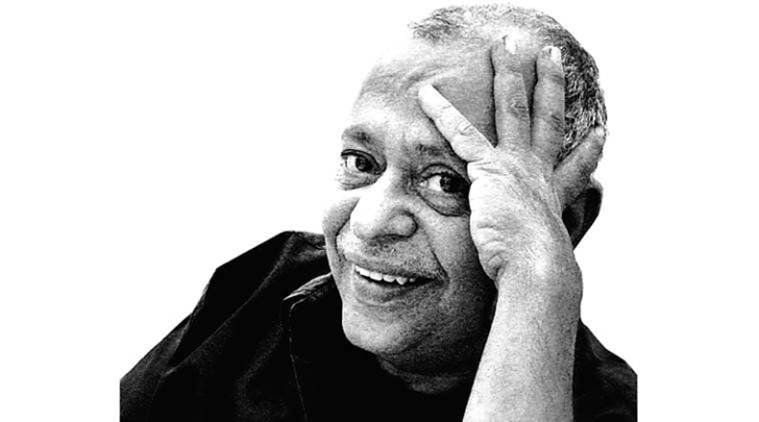 Pradeep Sachdeva sufferred a heart attack. (Brijender S. Dua)
Pradeep Sachdeva sufferred a heart attack. (Brijender S. Dua)
The people of Delhi and beyond owe a huge debt of love and respect to an architect who was a lover of life, people, and the aesthetics of public spaces. Pradeep Sachdeva, who passed away on Sunday, had taken Delhi, its buildings, its pathways and parks, streets, and marketplaces to his heart. He gently encouraged citizens to respect and honour their surroundings by offering them something better than the general squalor in most public environments. The arrival of a clean, gleaming metro system stopped passengers from shouting, spitting, eating, and sullying the stations and compartments because it was presented as a much-improved facility for the use of people. Pradeep had decided he would dedicate himself to cultivating a similar attitude amongst people towards as many public spaces as he could. He did design private houses and luxury spots like the Samode resort in Rajasthan, but his heart was set on projects for the larger good.
We happened to meet in the early 1990s, when Dilli Haat was brewing in my head as a concept heading towards realisation. This developed into one of the most valuable friendships anyone could wish for. We felt instantly comfortable with each other’s approaches and value systems and shared the spirit of service before self. A crafts marketplace was thus designed on the lines of a rural weekly — or daily — market, comfortable and unobtrusive. It was primarily planned as a space that kept the craftspersons’ needs and interests as its priority while being a large aesthetic public space. Nothing like this had been tried before. Dilli Haat was to be built over a stormwater drain, and there was joint triumph when it was inaugurated on March 28, 1994. It was Delhi’s first space for shopping for hand-made treasures directly from the makers that combined open-air but seated eating spaces. There were also spaces for cultural events and pleasant, safe surroundings that had a calming impact.
The atmosphere enabled the income of rural craftspeople to rise exponentially over the years and everyone, from infants to elders on wheelchairs, enjoyed the Dilli Haat experience. It became a “cool place to hang out” for all generations. Pradeep was particularly proud of being one of the first architects in the country to provide a ramp for the physically-challenge, for which, among other things, Dilli Haat got the PATA Tourism award. Materials, design sensibilities, signage and many other aspects of Dilli Haat were Indian and local. Later, also with Delhi Tourism, Pradeep added an elegant but simple museum at one end of the haat to honour A P J Abdul Kalam. Last year, we prepared and presented a plan for Dilli Haat’s renovation at the behest of Delhi’s Deputy Chief Minister, Manish Sisodia.
Delhi Tourism acknowledged Sachdeva’s honesty, sincerity and talent. He created the Garden of Five Senses at Said-ul-Ajaib near the Qutub Minar. It included huge ceramic and terracotta craft installations. Delhi saw contemporary public art for the first time. He improved pavements and other sections of Connaught Place aesthetically and was working on the gigantic and ambitious task of re-ordering and pedestrianising the central spine of Chandni Chowk.
Pradeep was the most genial, welcoming, and generous friend to all who met him. He never said no to anyone seeking assistance, and never said an unkind word against those who troubled him deeply. It was particularly agonising to watch his pain, struggling to work on the Chandni Chowk project facing endless government meetings and court cases filed by conservation architects whose arguments he could not understand. He only said, “It’s so painful, Jaya because these people are my friends, but they don’t understand the realities of today”. His last reference on this project to me was that they had progressed far enough for us to now work together on our plan to hand paint and upgrade the rickshaws in the area so they would become a comfortable transport system in the small lanes, but with the added attraction of flaunting traditional artists’ works depicting Delhi.
Creating beautifully hand-crafted furniture was Pradeep’s accompanying passion. They are always on display at his calm and welcoming PDSA showroom and workplace at Ayanagar in South Delhi.
Despite his dedication to the development of better urban spaces, he loved small projects in the hills or distant villages. An ardent giver of hand-crafted wooden gifts on Diwali made at his workshop, he once sent us a note saying, “There is this small school for rural kids we have built. It needs support. Do you mind if I use the money I spend on sending gifts to friends towards the school instead and count it as if it’s from you?”. Who could have thought of such a beautiful way of not giving a gift!
Artisans, street children, the mosaic mistri who decorated the areas around the PM’s residence, mentors and students, all loved him equally, for his imagination, innovative aesthetics, humour, smile, and above all, an honest commitment to his profession and friends. The grace with which he lived and shared in his work will now be embraced by the greatest public space of all — the infinite cosmos.
This article first appeared in the print edition on June 3, 2020 under the title ‘Creator of graceful spaces’. The writer is former president, Samata Party.